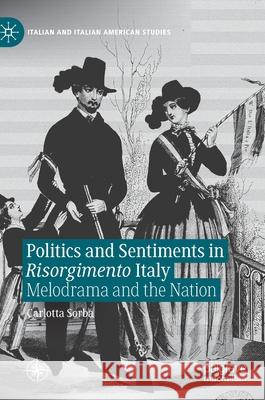Politics and Sentiments in Risorgimento Italy: Melodrama and the Nation » książka
topmenu
Politics and Sentiments in Risorgimento Italy: Melodrama and the Nation
ISBN-13: 9783030697310 / Angielski / Twarda / 2021 / 302 str.
Politics and Sentiments in Risorgimento Italy: Melodrama and the Nation
ISBN-13: 9783030697310 / Angielski / Twarda / 2021 / 302 str.
cena 504,67 zł
(netto: 480,64 VAT: 5%)
Najniższa cena z 30 dni: 501,19 zł
(netto: 480,64 VAT: 5%)
Najniższa cena z 30 dni: 501,19 zł
Termin realizacji zamówienia:
ok. 20 dni roboczych.
ok. 20 dni roboczych.
Darmowa dostawa!
Kategorie BISAC:
Wydawca:
Palgrave MacMillan
Seria wydawnicza:
Język:
Angielski
ISBN-13:
9783030697310
Rok wydania:
2021
Wydanie:
2021
Numer serii:
000456348
Ilość stron:
302
Waga:
0.53 kg
Wymiary:
21.01 x 14.81 x 1.91
Oprawa:
Twarda
Wolumenów:
01
Dodatkowe informacje:
Wydanie ilustrowane











